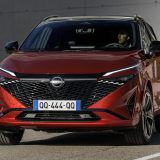Are electric cars more likely to catch fire than petrol and diesel cars?
Commentators are quick to blame EVs
With recent high-profile vehicle fires hitting the headlines, such as the Luton Airport car park blaze in October this year, plenty of mainstream media outlets and also social media channels have been suggesting that electric vehicles (EVs) pose a greater risk of catching fire than petrol or diesel cars.
But what is the truth of the matter?
In fact, independent research into the subject from across the world suggests that the inverse is true; that EVs are far less likely to catch fire than internal combustion engined (ice) machines.
However, should a battery-electric vehicle catch fire, there are unique challenges. When a high voltage battery catches fire it is fairly spectacular and much harder for the authorities to contain, and this has led to the widespread circulation of plenty of misinformation about the frequency and/ or severity of EV fires.

Misinformation on social media channels
When the Luton Airport fire was first reported, an initial and almost immediate reaction on social media saw a wave of claims that an EV had started the blaze.
It was later confirmed that a diesel-powered Range Rover had in fact triggered the incident.
Similarly, rumours swirled around the 2017 New Year’s Eve fire at a car park near the Echo Arena in Liverpool that an EV had been the culprit, but it was revealed that a 16-year-old LPG-converted Land Rover was the spark for that inferno — which ultimately destroyed 1,305 cars and resulted in a £20 million-plus insurance claim.
Recent studies have shown the risk of an EV catching fire is typically lower than it is for an ice vehicle. The Swedish Civil Contingencies Agency (MSB), for instance, demonstrated that in 2022, there were 106 EV fires in the country during the year.
However, only 23 of these were passenger cars, with the remainder made up of electric scooters and bicycles – both of which have far less stringent safety measures for their traction battery packs than full EVs.
Twenty times less likely to catch fire
The MSB went on to show that, as a proportion of all EVs on the roads versus all ice cars on the roads, petrol and diesel vehicles were almost 20 times more likely to catch fire than electric-powered machines.
Meanwhile, EV FireSafe, an Australian company, studied global data on the reports of EV fires from 2010 to 2022, concluding that there was a 0.0012 per cent chance of a passenger EV catching fire, compared to 0.1 per cent for an ice vehicle, a far higher (but still tiny) level of risk — 80 times greater, in fact.

Another report by US-based Autoinsurance EZ actually suggested hybrids were the most likely to catch fire, with 3,474.5 instances per 100,000 vehicle sales, followed by ice (1,529.9/100k) and then EV (25.1/100k), although the methodology of this report has been questioned by some experts.
Part of the problem is that, despite their growing popularity, EVs are still far outnumbered around the world by ice cars and hybrids.
This means the sample sizes are not always comparable, so data and findings can skew in favour of EVs.
Flammable fuels on ICE vehicles
That said, it is now widely accepted that EVs are less likely to catch fire than traditional ice cars. This is because there’s much more on a petrol, diesel or hybrid vehicle that’s flammable, or conducive to causing a fire — the most obvious point being that petrol and diesel cars run on flammable fuels (albeit diesel is much less flammable than petrol), whereas EVs have no such risk onboard.
Further, ice cars have engines which run hot, and it can be the leaking of other fluids — such as brake fluid, for example — onto a hot exhaust which can precipitate a vehicle fire. Again, with no exhaust pipes, EVs are immune from this.
EV fires difficult to extinguish
The major issue, though, is that once it is alight, an EV fire is far harder to put out than an ice fire.
This is because the lithium-ion battery burns in a different manner to fuel, and firefighters must respond to it in a different fashion to an ice fire. There is also the risk of toxic vapour clouds, sparks and highly directional jets of flame from an EV fire.
Further, it requires much more water to put an EV fire out in the first place, and there is the increased risk that the fire could possibly reignite hours, days or even weeks after the initial blaze due to the energy stored within.
Firefighters across the world are even experimenting with completely submerging in water any EVs that have been on fire, to mitigate the potential aftermath risks.

To that end, the disposal of used lithium-ion batteries or even damaged EVs in scrapyards must be carefully managed (most can be safely stripped and recycled), and some global shipping companies have started to refuse to carry EVs.
This follows the fire on the Felicity Ace car transporter vessel off the Azores in early 2022, which eventually sank in the Atlantic Ocean with its cargo of 3,965 new and used vehicles — including EVs — still onboard.
This links to the danger that while EVs might not start the blaze in the first place, if they are parked in a confined space — such as an underground or multistorey car park — and another vehicle catches light near them, then their battery packs could complicate the job for firefighters.
EV fires increase, but relative risks remain low
All of the data from the assorted studies shows that the instances of EV fires are increasing — but that’s because the number of electric cars is growing significantly, as countries across the planet prepare legislation to eventually outlaw ice in the future.
Proportionally, creditable findings from various worldwide sources show that EVs are still far less prone to catching fire than ice vehicles, despite what is sometimes reported on social media channels and in some national outlets that have a strong anti-EV agenda or bias.
Importantly, any type of car fire is extremely rare.
Related articles
- If you were interested in how likely EVs are to catch fire, perhaps read the full story of the Luton Airport blaze
- You might also want to read about the time Axa admitted faking a Tesla battery fire in a crash test
- UK drivers pay £1.5bn a year in car park damage repairs
Latest articles
- Omoda 5 prototype review: Bargain family SUV is solid first effort for new Chinese brand
- Dacia Duster 2024 review: Rugged, affordable SUV modernised with electrification and quite the glow up
- Audi A3 Sportback 2024 review: Softly, softly, catchy premium hatchback buyer
- New electric-only Mini Aceman fills gap between Mini Cooper hatch and Countryman SUV
- Tesla driver arrested on homicide charges after killing motorcyclist while using Autopilot
- Porsche Macan 2024 review: Sporty compact SUV goes electric, but is it still the class leader for handling?
- F1 2024 calendar and race reports: What time the next grand prix starts and what happened in the previous rounds
- Aston Martin DBX SUV gets the interior — and touchscreen — it always deserved
- Nissan unveils bold look for updated Qashqai, still made in UK














